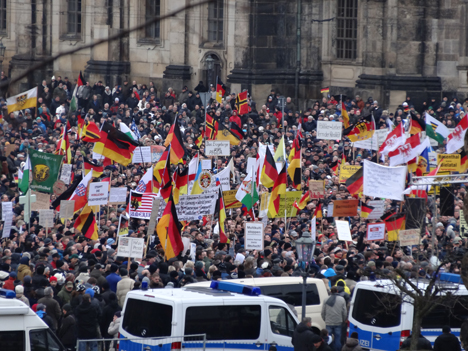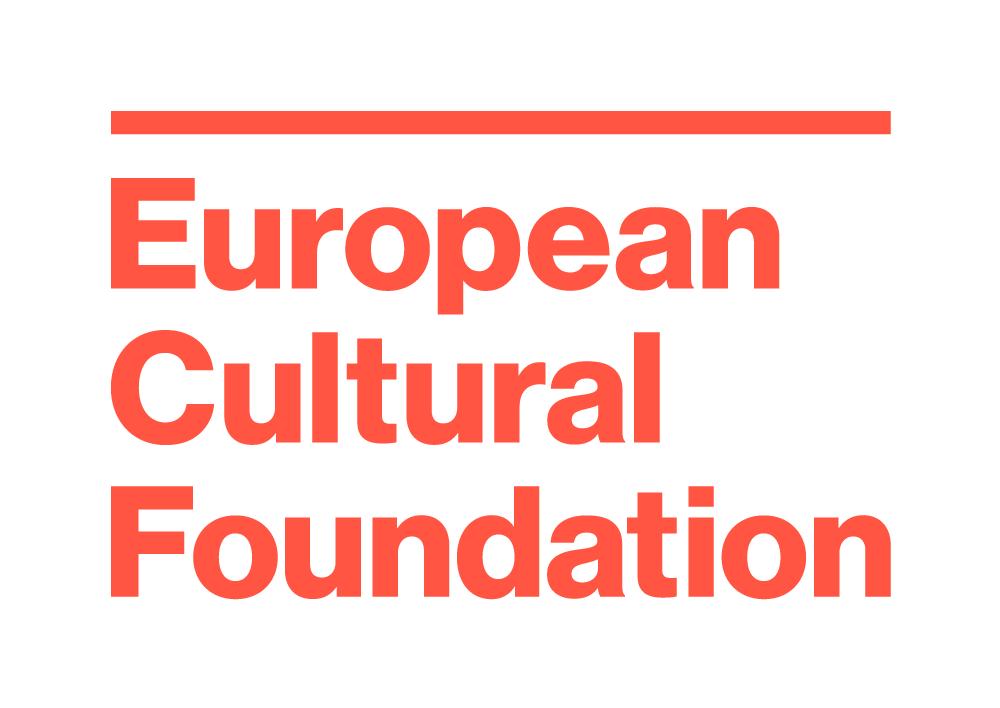The limits of solidarity
The success of Germany’s anti-immigrant party signals a mood-swing in public debate on the refugee crisis. The solidarity expressed by Angela Merkel’s ‘We can manage’ has given way to something much less generous, writes Daniel Leisegang.
Last year’s global displacement crisis has shaken Germany’s political-ethical coordinates to the core and changed the country as a whole – its identity, its role within Europe and not least its political discourse. At the core of current debates is one question: What is our understanding of solidarity?
We all remember: over a year ago thousands of refugees arrived at Europe’s borders. They came mostly from Syria, Afghanistan, Iraq, Eritrea, Nigeria, Somalia and the Maghreb states.
Europe was ill-prepared to shelter so many people. Most European governments were also not willed to do so. For weeks, thousands of refugees waited in states at the south-eastern border of the European Union, enduring chaotic and undignified conditions. When the situation escalated dramatically – especially in Hungary – the German government finally decided to open its borders to the refugees (primarily in response to pressure from Hungary’s prime minister Victor Orbán). In support of those that welcomed the move, Angela Merkel pronounced the now famous words: ‘We can manage!’ (Wir schaffen das).

PEGIDA Demo DRESDEN 25 Jan 2015. Photo: Kalispera Dell. Source:Panoramio
The decision to open the borders marked the beginning of the ‘summer of migration’. Over a thousand refugees arrived in Germany every day. By the end of the year they totalled around one million.
Initially, the refugees’ were greeted by cheering crowds at main stations and border crossings. They received water, cookies and toys. Thousands of helpers donated money, distributed meals, taught German or housed refugees. This ‘culture of welcome’ stemmed from heartfelt sympathy for those who had suffered so much and travelled for so long. The atmosphere was compared to the colourful, friendly patriotism during the soccer world cup in Germany in 2006.
But when people continued to arrive and things got increasingly out of hand, criticism became louder and harsher. The decision to open the borders was even declared to have been illegal. Agitation against Merkel’s policy went hand in hand with brutal violence: in 2015, more than 1000 attacks on accommodation for refugees were registered. Fearing a further radicalization on the Right, the European states decided in late summer 2015 to restore border controls and introduce entry restrictions.
The summer of migration was followed by a long winter of border controls. By November, the German and the Turkish government had agreed on a plan to drastically reduce the inflow of refugees to Europa via Turkey. The deal enabled the German government to regain control over the immigration of refugees.
Needless to say, this didn’t solve the refugee problem, but only relocated it beyond the gates of Europe. The deal with the Turkish government also could not prevent the rightwing party ‘Alternative for Germany’ (AfD) gaining further support in Germany. Its popularity increased even more after the sexual assaults on New Year’s Eve in Cologne – committed mostly by young men from Northern African and Arab states – and the terror attacks across Europe in the summer.
In recent regional elections in Germany, the AfD received up to 24 per cent of the votes; in nationwide opinion polls its ratings are around 15 per cent. If things continue as they are, the party will enter the national parliament after the general elections next year.
Whose solidarity?
This turn from a culture of welcome to a culture of hate and seclusion happened within the space of a few months. How was this possible?
The development is well illustrated by the way Merkel’s words ‘We can manage!’ have been interpreted. First, they bring to mind other political appeals in German history – for example Willy Brandt’s ‘Dare more democracy!’ (Mehr Demokratie wagen) in 1969 or Helmut Kohl’s ‘We’ll make it’ (Wir werden es schaffen) in 1990, referring to the challenges of reunification. Merkel’s mantra even has echoes of Barack Obama’s ‘Yes we can’.
They all share one thing: a stress on the common basis and a call for solidarity. But the question remains: what kind of solidarity was Merkel calling for?
We can distinguish three forms of solidarity. First, solidarity that is directed inwardly within a specific group; second, solidarity that is directed outwardly towards strangers; and third, solidarity that is generated against something or someone.
Merkel’s mantra can be understood as pragmatic encouragement: great challenges lie ahead and together we will meet them. Here, Merkel was especially addressing citizens worried about immigration and a resultant loss of control. Merkel was above all expressing inward solidarity within German society.
However, since Chancellor Merkel has never explained in detail what she meant, we cannot know for sure. However we do know that her words were not addressed to the refugees who had arrived in Germany. They have never been included within a call for solidarity.
Because of the vagueness of Merkel’s mantra, important questions have not been answered conclusively: What moral duties does the refugee crisis bring for German society? What do those who live in Germany expect from those who arrive? What changes are citizens willing to accept? And what do the refugees need most from those who have just let them in?
Merkel was not interested in initiating this kind of debate. She was more interested in doing something that she had done during the peak of the financial crisis a few years ago: pacifying the public and buying time, in order to make a deal with Turkey that would ensure that Europe was shielded from the refugees at its borders.
Unfortunately, Merkel dramatically underestimated one thing. Since she never explained the meaning of ‘We can manage’, rightwing populists were able to exploit the ambiguity of the phrase for their game of fear and mistrust.
Breaking points
How could the rightwing populists have become so successful? A major reason for lies in the welfare policy of the last decades.
In 2003, Germany’s red-green coalition government initiated the greatest reform of the labour market and the welfare state in Germany since the end of World War II. Its goal was to cure ‘the sick man of Europe’ and strengthen the competitiveness of the German economy by wage restraint, relaxation of labour laws and drastic cuts in social spending.
Above all, the coalition reversed the social democratic idea of solidarity: support from the strong for the weak in society. The new policy demanded that the beneficiaries show solidarity with the benefactors: those in need should not demand too much from those able to give. Solidarity was from now on conditional: ‘Those who do not work, shall not eat’, demanded the Social Democrat minister of employment, Franz Müntefering.
A similar pattern can be observed in the current politics of austerity. Since the outbreak of the financial and economic crisis in 2008, states that receive credit are expected to show solidarity with those that provide it. The rule is that only those who cut spending have a right to credits. The social impact of this non-solidary approach can be observed in Greece and other southern European countries.
What was lost through the Agenda 2010 was the promise of prosperity. The consequence was a transformation of solidarity into a protection of social status. This is something that the middle class in particular fights with all means to preserve. No space remains for true solidarity with those left behind or fleeing persecution. Fear of social demotion and reaching one’s own breaking point overrides all other concerns.
The return to solidarity
In other European states the situation is similar. We are witnessing growing racism and the rise of far-Right, anti-Islamic and anti-European parties. How can we escape this vicious cycle of seclusion, hostility and violence?
First, we need to reconsider solidarity. Solidarity must not be generated against others. Instead, we must show solidarity with those that are threatened by war and multiple global crisis (to a great extent caused by the global north). Solidarity with others must be based on a different economic and social policy inside the EU, which promotes solidarity within the union rather than undermining it.
Second, reciprocal solidarity relies on the willingness of the majority society to be changed by those who migrate. The migrants also have to learn a lot: a new language, education, training and labour, living in a secular, pluralistic, democratic and capitalist society. This challenge demands from both sides curiosity, patience, tolerance, lenience and calm.
Currently, we are far from this kind of solidarity – either in Germany or anywhere else. Merkel no longer repeats her mantra of ‘We can manage’ and instead, in her latest statement, insisted that: ‘Germany will remain Germany, with all that we treasure and appreciate.’ And: ‘We haven’t taken away anything from anyone living here.’ This is the new ‘We can manage’. And it is the frank confession that German refugee policy shifted a long time ago.
It is the denial of a political-moral stand that calls for a just refugee policy. It is the renunciation of inclusive solidarity.
Published 4 October 2016
Original in English
First published by Eurozine (English version)
© Daniel Leisegang / Eurozine
PDF/PRINTIn collaboration with
In focal points
- Disintegration or revival?
- Mobilizing law for solidarity
- Solidarity after Machiavelli: An interview with Ira Katznelson
- Liberalism, populism and the challenges of post-transformation in eastern Europe and beyond
- The limits of solidarity
- On the borders of solidarity
- The crisis of neoliberalism in Europe
- Utopian dreams beyond the border
- The politics of nature in the Anthropocene
- Strangers when we meet: Identity and solidarity
Newsletter
Subscribe to know what’s worth thinking about.
Related Articles

Vienna’s hosting of Ukrainian artists and writers recalls the days of the fin de siècle, when the city was a magnet for intellectuals seeking freedom from Tsarism. But despite strong historical affinities, subtle barriers to solidarity with the Ukrainian exiles remain.

Prisoners of conscience
A conversation with Myroslav Marynovych
Defenders of human rights often face high stakes. When the Ukrainian Helsinki Group openly challenged the Soviet Union in the name of the 1975 Universal Declaration of Human Rights, young dissidents soon became political prisoners. The price for being a non-conformist was steep yet encouraged solidarity, paving the way to Euromaidan.






